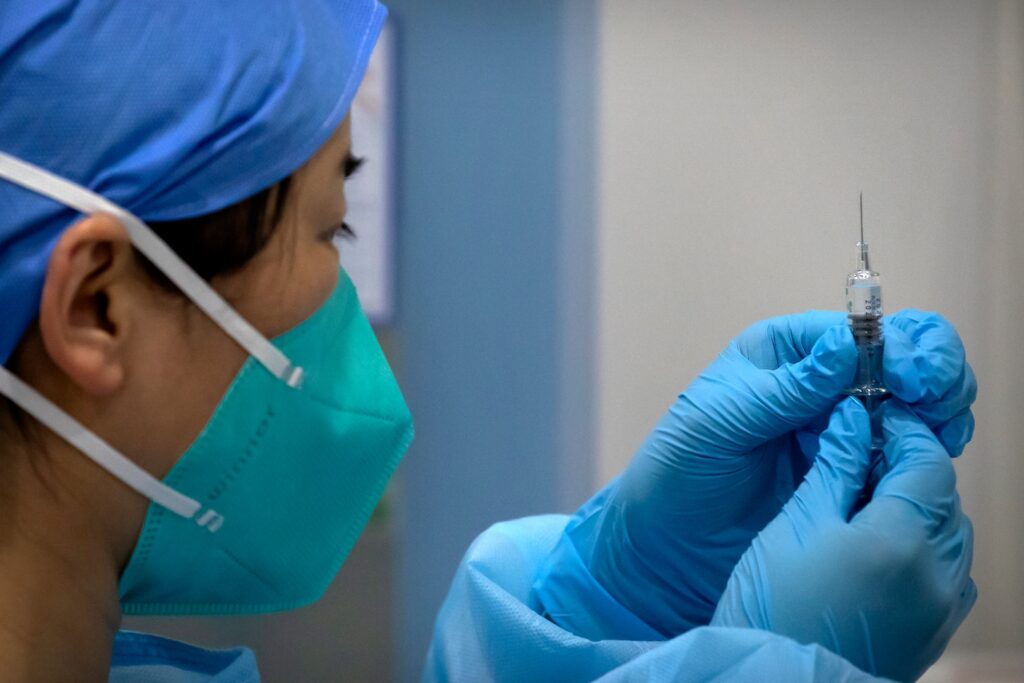As disinformation and misinformation become primary tools of global conflict, democracies must decide when and how to influence populations abroad. Influence campaigns are undoubtedly necessary, but how to conduct them in accordance with democratic values is unclear.
The Pentagon has provided a good lesson in what not to do: its covert disinformation campaign against Chinese-made coronavirus vaccines in 2020 and 2021, uncovered by a Reuters investigation, was a grave mistake.
Reuters reporters Chris Bing and Joel Shechtman reported on June 14 that the Pentagon operation targeted the Philippines and “aimed to sow doubt about the safety and effectiveness of vaccines and other life-saving aid being supplied by China.” They found that the Pentagon created about 300 fake social media accounts through contractor General Dynamics IT. According to Reuters, the accounts were used to pose as Filipinos and criticize China and the quality of “face masks, testing kits and the Chinese Sinovac vaccine, the first vaccine to be available in the Philippines.”
The campaign featured the slogan “China is the virus” in Tagalog. One post from July 2020 read in Tagalog: “The coronavirus came from China, the vaccine came from China too. Don't trust China!” The words were written next to a photo of a syringe next to a Chinese flag and a graph showing a sharp increase in the number of infections. Another post read, “From China – PPE, face masks, vaccines: fake. But the coronavirus is real,” according to Reuters. The campaign was launched under President Donald Trump and ended by President Biden in mid-2021.
 Follow this authorEditorial Board Opinion
Follow this authorEditorial Board Opinion
Psychological warfare has been a tool for foreign influence for decades, but the digital revolution has accelerated the use of disinformation and misinformation. Reuters reported that in 2019, then-Secretary of Defense Mark Esper signed a secret order allowing commanders to bypass the State Department when conducting psychological operations against Russia and China.
When the pandemic began, China blamed the United States. Military officials from Central Command, based at MacDill Air Force Base in Tampa, decided to respond with a social media campaign targeting China. The fake posts aimed to cast doubt on the Chinese-made Sinovac vaccine, released in early 2021. The vaccine is less effective than the U.S.-made mRNA vaccine, but is still a valuable tool to fight the pandemic and has been approved by the World Health Organization. The fake posts aimed to “amplify the controversial claim that Chinese vaccines could be considered forbidden under Islamic law because they sometimes contain pork gelatin,” Reuters found, noting that the fake posts were also intended to be more widely disseminated in Southeast and Central Asia.
The Philippines has always been a breeding ground for vaccine hesitancy. The dengue vaccine furor of 2016-2018 created doubts about vaccinations. During the pandemic, the country suffered high death tolls and low vaccination rates. By July 2021, when a desperate President Rodrigo Duterte threatened to arrest those who had not been vaccinated, only 2.1 million of the country's 114 million people had been fully vaccinated, far from the government's goal of 70 million.
The Pentagon made a serious mistake by spreading disinformation that could directly harm individuals: that avoiding tools like masks and vaccines would make us more vulnerable to the virus. Reuters reports that at least six State Department officials have spoken out against the campaign, with one saying, “We're sneakier than China and we shouldn't be doing this.”
The US is undermining its own credibility this way. The Pentagon conducted a review in 2022. Since then, the Pentagon and State Department reportedly signed an agreement to strengthen oversight of such operations, which remains in place. Some of Esper's 2019 orders have been rescinded, which is a good thing. Future administrations should remember why.
In fact, the United States should lead the fight against the global spread of disinformation. China and Russia constantly push the false argument that autocracies are more effective at helping people than messy democracies. In fact, Beijing and Moscow suppress human dignity and individual initiative. This is one of the honest messages that Western information campaigns can spread.
The State Department's Global Engagement Center is part of this mission, but its future is in jeopardy. While the Senate approved its reauthorization, the Republican-controlled House of Representatives did not follow suit, meaning the program could expire by the end of the year. The Center has done important work exposing Russian disinformation campaigns, including a new report condemning Russian attempts to disrupt Moldova's elections. The House should act now to ensure that this program, years in the making, is not forgotten when it is needed most.



